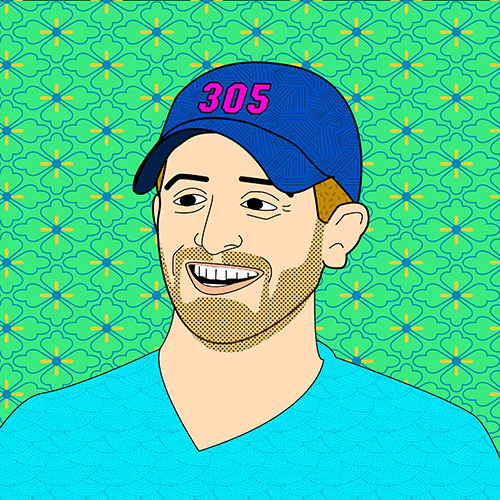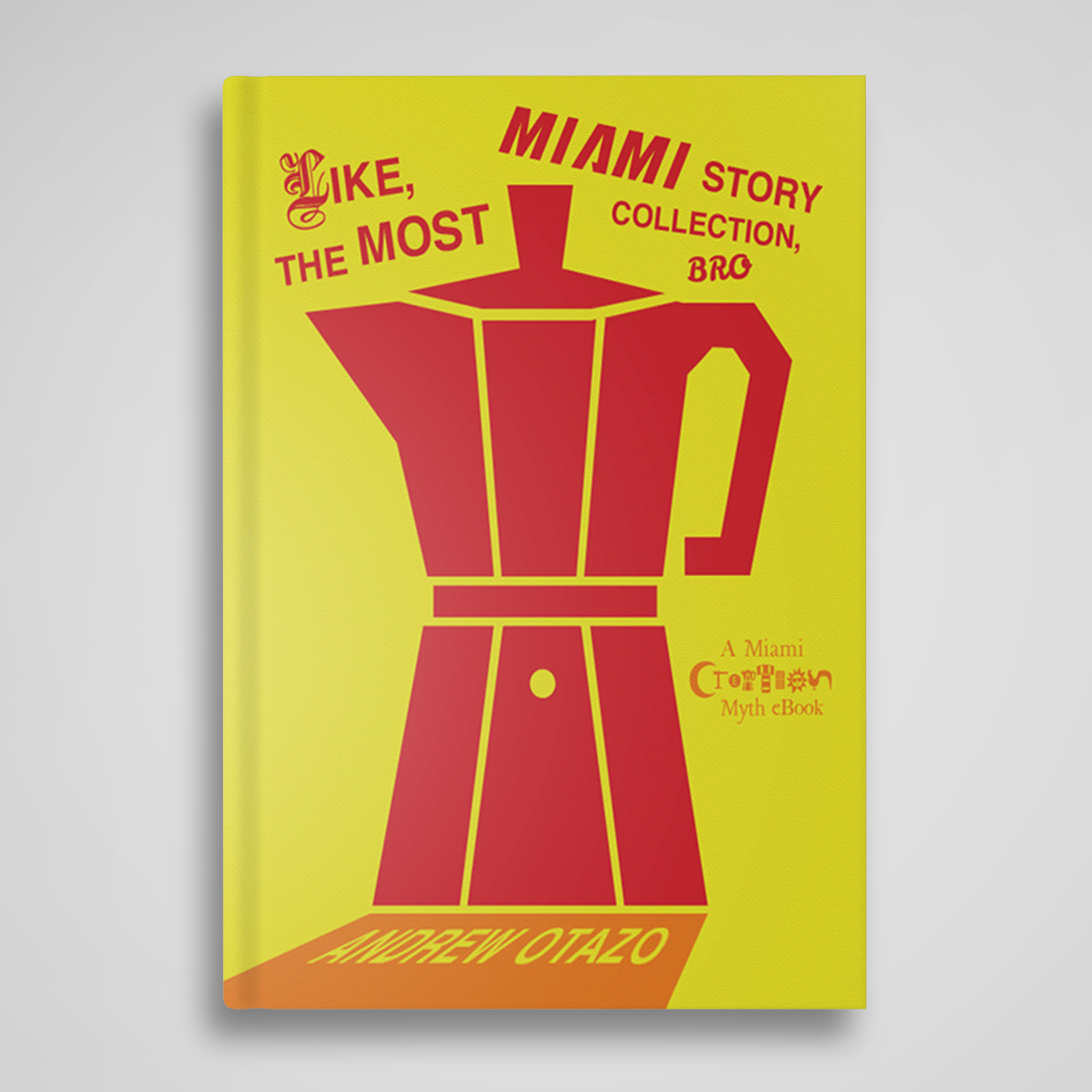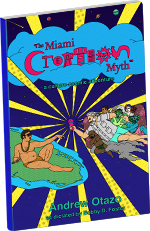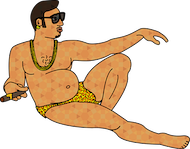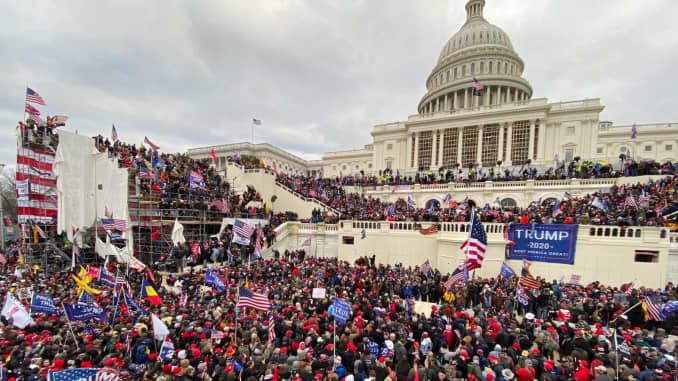
Yesterday, I received a stream of messages from friends across Latin America—Venezuela, Nicaragua, El Salvador, among many others. They wanted to know if I was OK, advised me to stay indoors, commiserated about recently experiencing similar political violence, and decried a coup attempt in the heart of the world’s previously preeminent democracy.
Their countries’ histories are replete with authoritarianism and undemocratic upheavals. Watching in disbelief as hundreds of rioters stormed the Capitol to halt a lawful transfer of power, what they saw was a reflection of their past and present. Interrupted democracy is a tragedy anywhere in the world, but in the United States, it is a surreal nightmare.
A coup d’état is defined as “the violent overthrow or alteration of a government by a small group.” Make no mistake, though it was unorganized, and messy, and ultimately unsuccessful, what the world witnessed in Washington D.C. on January 6, 2021 was a coup attempt. After losing an election, radicalized adherents of a defeated political party sought to violently prevent an opposing party from assuming office. U.S. elected officials who gathered to certify a free and fair election were run out of their chambers by a howling mob.
Trump is directly responsible for this unprecedented national disaster. I will not delve into examples of his authoritarian instincts, policies, or pronouncements, for they are legion. I will simply state that he has refused to accept the popular will of his supposed constituents and repeatedly, adamantly insisted his devotees to do the same. Those who refuse, including members of his own party, are enemies of the country who should be berated, attacked, and ultimately eliminated if they do not repent. As they often do, his acolytes accepted his word as gospel, following it to the letter.
Harnessing the power of a zealous and disaffected demographic, a demagogue constructed a political powerbase centered solely around himself—not his party and certainly not the Constitution. He ignored myriad democratic norms, gleefully subverting the spirit and letter of the law whenever it suited his wholly narcissistic ends. Political allies were discarded with nary a thought should they ever stray from his arbitrary prescriptions. All other considerations—whether upholding democratic values, protecting civil rights, or ensuring constituents’ physical safety—were subsumed to his all-encompassing obsession with retaining power. Though the distinction may be unclear, I am not describing Donald Trump, but Hugo Chavez.
Almost exactly two years ago, Nicolás Maduro, Chavez’s successor, did not concede to his opponent after losing a presidential election. Though Venezuela’s legislature certified Guaidó’s win, Maduro refused to accept defeat. This catalyzed unprecedented turmoil that culminated in Maduro sidelining the legislature and declaring himself president for another term. Paramilitary forces completely loyal to their despot enforced his will by force, terrorizing real and perceived opponents as directed. A couple years later and 2,000 miles north, history rhymes once more. The sole hope for American democracy is that Trump does not appear to have accumulated the same amount of power as Maduro to completely defile the U.S. Constitution.
Most infuriatingly, Trump stoked the generational trauma of millions of Venezuelans, Cubans, Nicaraguans, and others whose rights, livelihoods, and loved ones were violently eliminated by authoritarian regimes. He played on their collective fear of dictatorship (often associated with socialism) for his own gain. Conjuring the ghost of Chavez and Castro, Trump painted his opponents as nascent dictators, ready to disassemble democratic processes the instant they entered office. Meanwhile, he had every intention of dropping those very principles the second it benefited him.
I am fully aware that my analogy is flawed. Unlike Venezuela, the United States is not a rentier narco-state. Unlike Caracas, D.C. is not a global murder capital. U.S. citizens are not malnourished or fleeing the country in droves. However, 20 years ago, Venezuela was a model of democratic stability whose robust two-party political system ensured routine peaceful transfers of power. Its large middle class supported a thriving economy that drew millions of immigrants from around the world. It fell apart over decades—driven by the mismanagement, incompetence, and power lust of avaricious, autocratic demagogues. My Venezuelan friends see the parallel. I hope Americans do too.
If you like our stories, read the first free chapter of our book.
 Andrew Otazo
Andrew Otazo
'Miami Creation Myth' author Andrew Otazo has advised officials on Cuba policy, worked for the Mexican president, fired a tank, and ran with 30lbs of trash.
Check out the first free chapter of Andrew’s upcoming book here.

